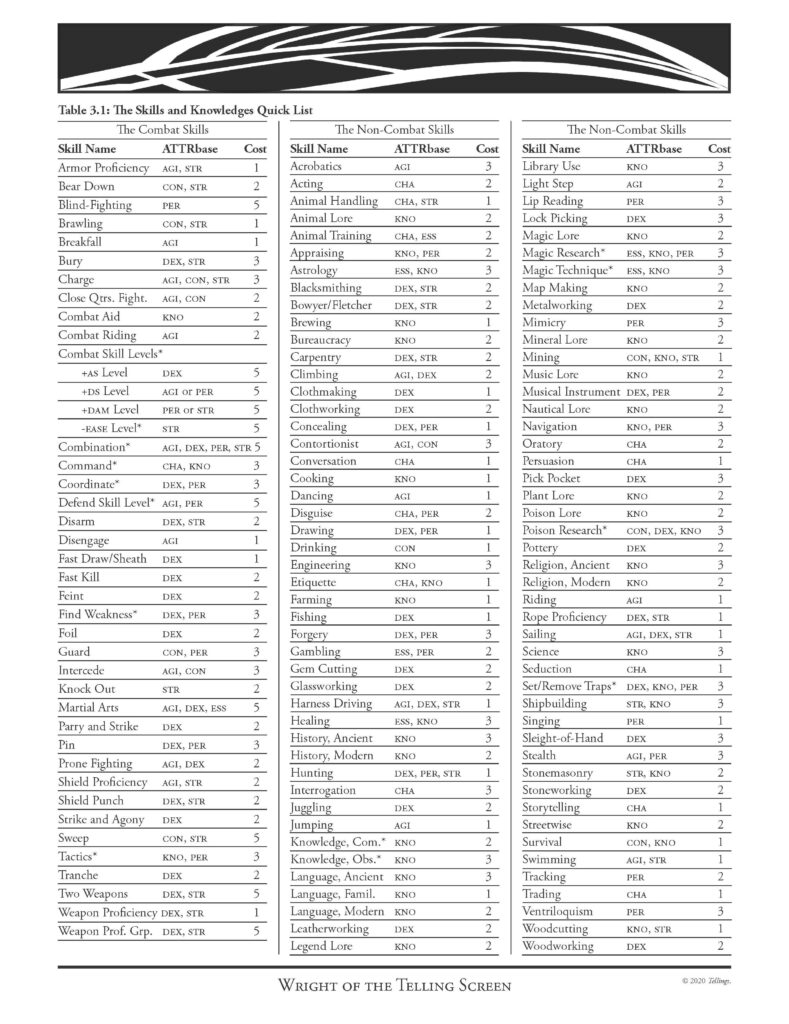
Tellings offers a varied skill list including 38 combat skills–from Armor and Weapon Proficiency to Brawling to Coordinate to Disarm to Shield Punch–and 92 non-combat skills–from Acrobatics to Blacksmithing to Drawing to Gambling to Lock Picking to Magic Research to Streetwise to Trading. Characters start with a base number of points determined by their Knowledge (KNO) Attribute score to spend on skills and knowledges; in addition, character can take on Weaknesses in order to earn more points to gain Strengths and additional skills.
Choosing Skills
The player-character begins with a concept, a general idea of who or what the character is. Then the idea of the character shapes the skeleton of the Attributes. And, over these bones, the character’s skills, knowledges, and abilities form the meat and muscle.
As a general rule, players will always bring their own knowledges and experiences to the characters they play. Just as a player’s personality will inflect a character’s persona, a player’s education and experience will shape the character’s mind, body, and rationales. Characters will often be as clever, intelligent, or knowledgeable as the players themselves but out-of-game information should never supplant good role-playing, the design of the character, and the rule of play and the rule of intent.
Therefore, the skills provided by the game help define what the character knows, what the character can do, and just as importantly, what the character does not know or cannot do. The skills provide one way to draw the fine distinction between one pc and another, between a player’s personal knowledge and a character’s in-play know-how.
Start by making a wish list of skills. Choose skills that reflect the concept of the character. What kind of training, education, or life-experience would the character begin with? Is the character an artist? Is the character a teacher? Is the character a ne’er-do-well of the streets? Is the character an fighter? Is the character an enchanter? Is the character a person-of-all-trades? From the list, decide which skills are the most important, which would be nice to have, and which are not necessarily vital to the character.
Chapter Three details the character’s starting skill points, how to buy skills, and how to use character Weaknesses to get more points to spend. Chapter Three and Chapter Four will heavily influence one another. Remember that the character creation process is always subject to back and forth fine-tuning, retuning, and revision.
The Skills List

